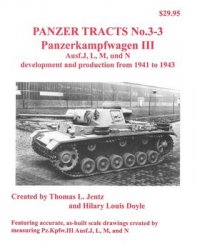Another challenge to U.S. influence in Latin America
appeared in 1970 when a Marxist, Salvador Allende
(1908–1973), was elected president of Chile and attempted
to create a socialist society by constitutional
means. Chile suffered from a number of economic problems.
Wealth was concentrated in the hands of large
landowners and a few large corporations. Inflation, foreign
debts, and a decline in the mining industry (copper
exports accounted for 80 percent of Chile’s export income)
caused untold difficulties. Right-wing control of
the government failed to achieve any solutions, especially
since foreign investments were allowed to expand.
There was growing resentment of U.S. corporations, especially
Anaconda and Kennecott, which controlled the
copper industry.
In the 1970 elections, a split in the moderate forces
enabled Allende to become president of Chile as head of
a coalition of Socialists, Communists, and Catholic radicals.
A number of labor leaders, who represented the interests
of the working classes, were given the ministries of
labor, finance, public works, and interior in the new government.
Allende increased the wages of industrial workers
and began to move toward socialism by nationalizing
the largest domestic and foreign-owned corporations. Nationalization
of the copper industry—essentially without
compensation for the owners—caused the Nixon administration
to cut off all aid to Chile, creating serious problems
for the Chilean economy. At the same time, the
government offered only halfhearted resistance to radical
workers who were beginning to take control of the landed
estates.
These actions brought growing opposition from the
upper and middle classes, who began, with covert support
from the CIA, to organize strikes against the government.
Allende attempted to stop the disorder by bringing three
military officers into his cabinet. They succeeded in ending
the strikes, but when Allende’s coalition increased its
vote in the congressional elections of March 1973, the
Chilean army, under the direction of General Augusto
Pinochet, decided on a coup d’état. In September 1973,
Allende and thousands of his supporters were killed.
Contrary to the expectations of many right-wing politicians,
the military remained in power and set up a dictatorship.
The regime moved quickly to outlaw all political
parties, disband the congress, and restore many nationalized
industries and landed estates to their original owners.
The copper industry, however, remained in government
hands. Although Pinochet’s regime liberalized the economy,
its flagrant abuse of human rights led to growing unrest
against the government in the mid-1980s. In 1989,
free elections produced a Christian Democratic president
who advocated free market economics.
The shadow of the Pinochet era continued to hover
over Chilean politics, however, as many citizens demanded
that the general, now living in exile, be brought
to justice for his crimes against humanity. In 2000, he was
returned to the country from Europe and placed on trial
for crimes that had allegedly taken place under his rule.




 World History
World History









